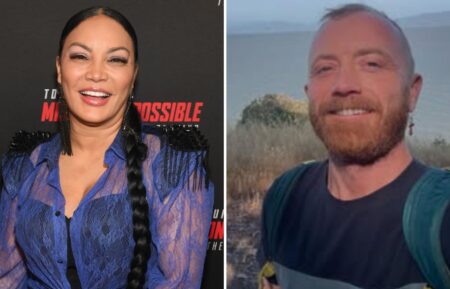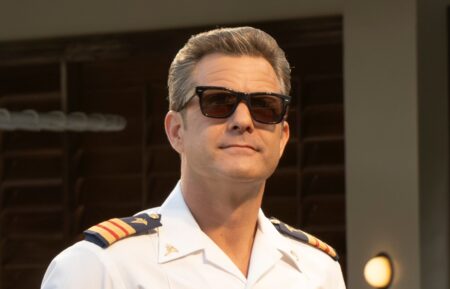Kiefer Sutherland & the ‘Designated Survivor’ Cast on a ‘180-Degree Shift’ in Season 3
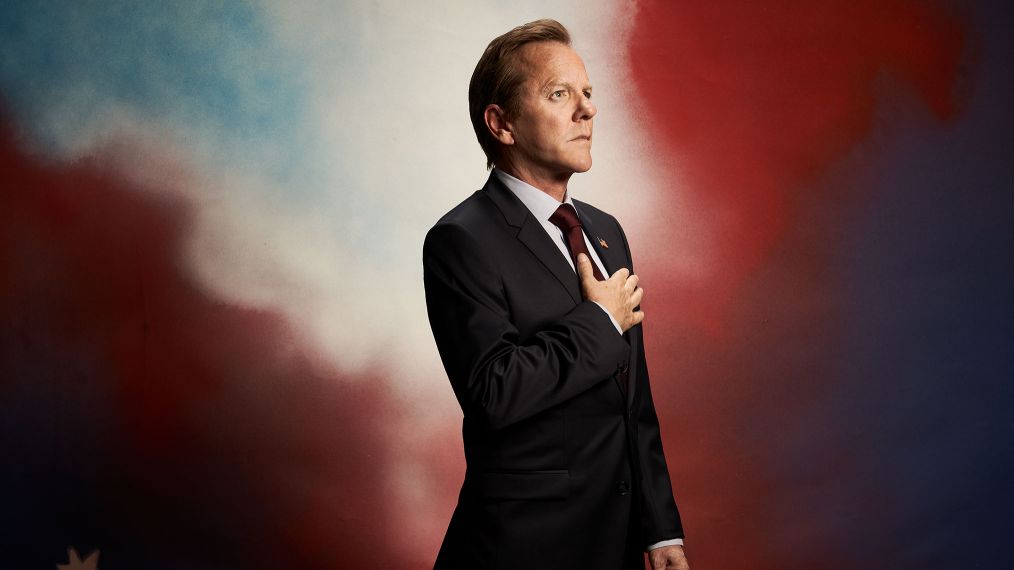
Preview
Last May, ABC announced that it would not renew high-profile series Designated Survivor — starring Kiefer Sutherland as a low-level cabinet member who’s suddenly thrust into the role of commander in chief following a devastating terrorist attack on the Capitol — for a third season.
While the cancellation didn’t exactly set off massive shock waves given the show’s flagging ratings, even those with, ahem, top-level security clearance were caught unaware. Admits Sutherland, “I found out at the same time everybody else found out — from a press release.”
It was an inauspicious ending, or so it seemed, for a show that had begun with such promise. The 2016 pilot episode of Designated Survivor pulled in 10 million live viewers, hooking fans and critics alike with its blend of political drama (à la The West Wing) and adrenaline-spiked thriller (Sutherland’s long-running hit, 24). President Tom Kirkman (Sutherland) had to navigate shark-infested Washington, D.C., without muddying his own idealism. Meanwhile, in the shadows, a sinister conspiracy threatened the very freedoms he was striving to uphold.
Alas, delivering on that — at the pace of 21 episodes per season — proved to be a tall order. To keep the stakes sky-high, come Season 2 the show began resorting to a crisis-of-the-week formula, with Kirkman and Co. facing a gauntlet of natural disasters and standoffs against fictional foreign adversaries.

(Netflix)
Kirkman didn’t fare much better on the personal front: His wife, Alex (Natascha McElhone), was killed in a polarizing midseason car crash.
Perpetual behind-the-scenes shake-ups — the series had four showrunners in less than two years — contributed to the creative dissonance. Designated Survivor had begun to gradually lose its way, along with some of its viewers, finally bowing out with a live audience of 3.5 million.
Sutherland took the news that Kirkman’s tenure had been cut short in stride. “I’ve been doing this long enough that I don’t get overly sentimental,” he says. “It was more, ‘OK, now I’ve gotta figure out what I’m gonna do next.'”
He didn’t have to wonder for long: A few weeks later, he got word that the streaming behemoth Netflix, which already owned the program’s international broadcast rights, wanted to offer a stay of execution — or in this case, a pardon. “[Executive producer] Mark Gordon called me and said, ‘Would you be interested?'” Sutherland recalls. “I said, ‘If they’re serious, then yes!'”
He wasn’t alone. Fellow cast members Italia Ricci (Emily Rhodes, Kirkman’s most trusted aide), Adan Canto (Aaron Shore, White House chief of staff turned national security adviser), Kal Penn (speechwriter Seth Wright), and Maggie Q (ass-kicking FBI agent Hannah Wells, who’ll be switching teams to the CIA) were also game.
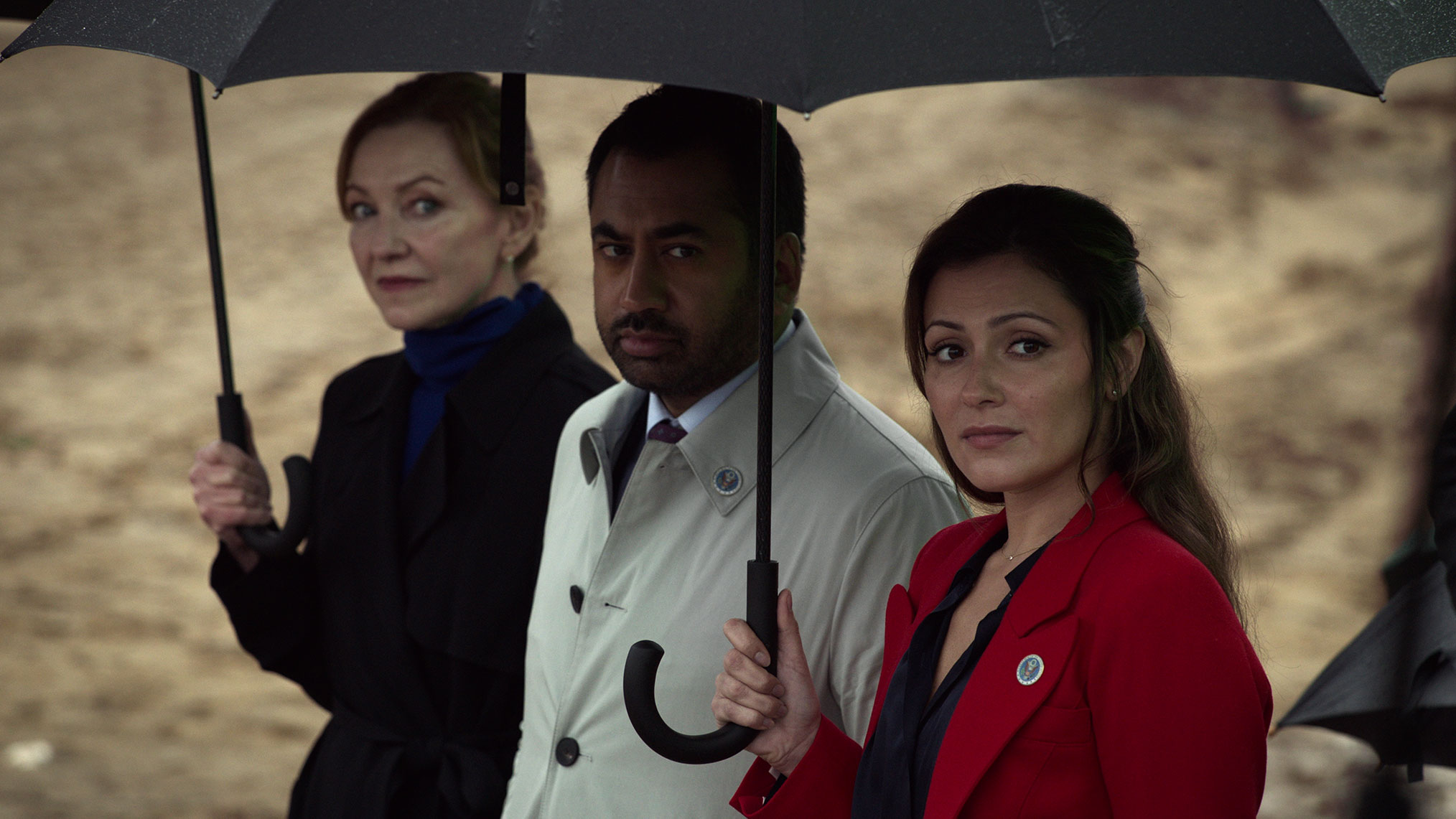
(Netflix)
So was showrunner Neal Baer, an alumnus of ER and Law & Order: SVU, who had been recruited to take over — and had worked up a revised direction for the series — prior to the cancellation. Says Baer, “Netflix did not want to give up on a show that still had huge potential.”
Although the company famously guards its shows’ ratings, it’s safe to assume that the series and, in particular, Sutherland, with his extensive foreign fanbase, had been enthusiastically embraced by overseas subscribers. As Netflix stated last September, “The international audience drove our interest to bring the show to the world as a Netflix Original.”
Meaning that the upcoming version will be kind of the same as the ABC version. It’ll have the Kiefer Factor and provide a fly-on-the-wall peek inside the Oval Office. But it’ll also be different and, quite possibly, loads better. The most substantial shift will be a move away from the disaster du jour model in favor of serialized, character-driven stories.
“It’s not going to be a tsunami this week or something happening in a strangely misnamed Middle Eastern country next week,” Baer says. “We don’t have to worry about Kiefer being a hero. We know he is.”
That approach also allows the show to get back to tackling the question that’s always been at its core: Can a good man survive and thrive within the American political machine without compromising himself? “Television doesn’t need to have bombs going off to present a crisis,” Sutherland says. “I think we underestimate the audience and the value of a simple moral crisis.”
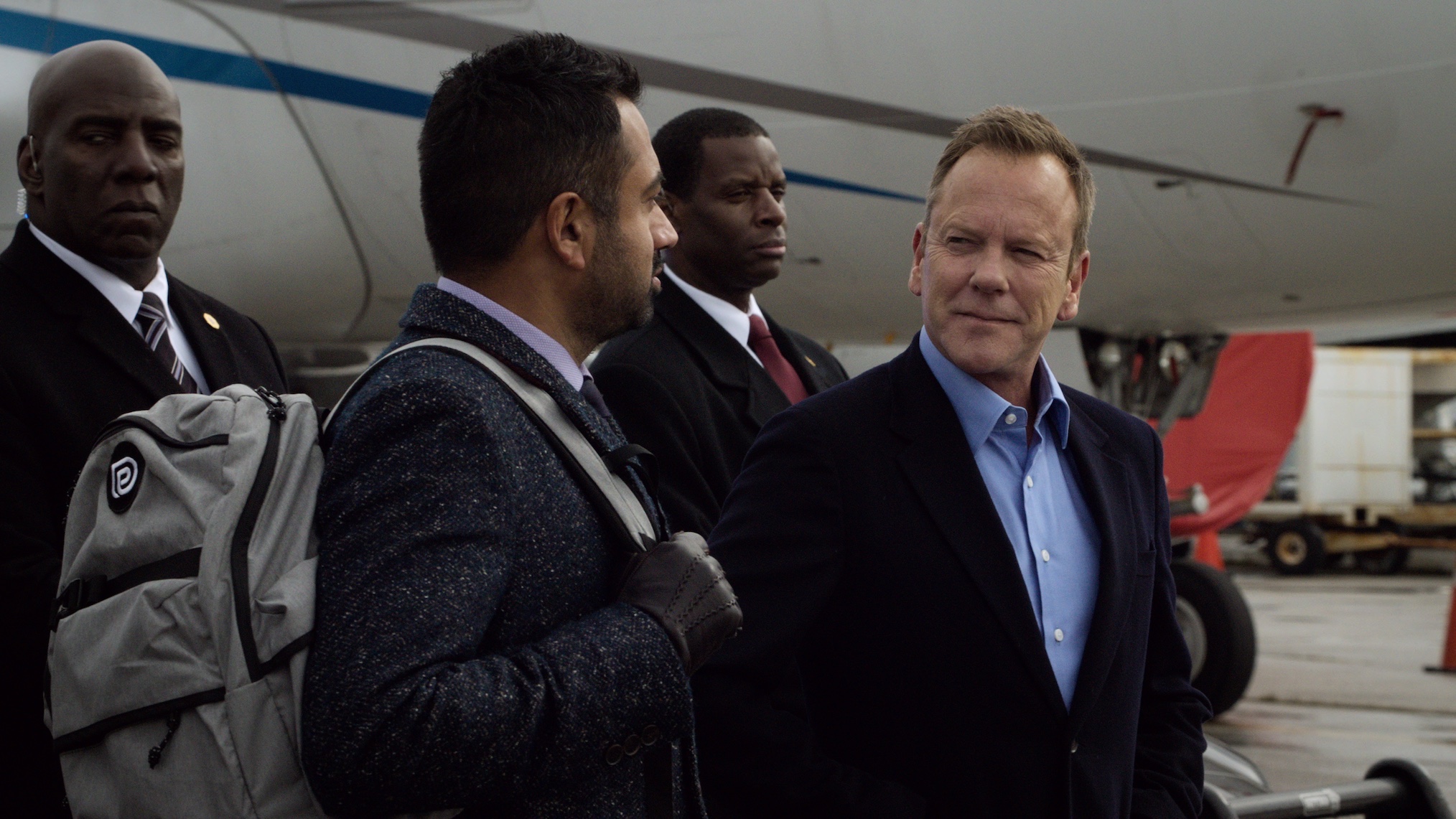
(Netflix)
To that end, Kirkman will be increasingly tempted to wade into ethical gray areas, wrestling with whether the end justifies the means. Much of that conflict will be explored through weighty issues facing him and his staff — as well as real American citizens featured in documentary footage representing Kirkman’s constituents — such as opioid addiction, transgender rights, and HIV among gay black men. Says Baer: “Every character has their own struggles that tie in, very much in the same vein of ER.”
Like ER … only racier. Aside from plotlines that would be considered too divisive or risky for broadcast TV, there’s lots more in-your-face evidence that Designated Survivor isn’t beholden to network censors anymore, like steamy sex scenes and profanity.
Yep: F-bombs will be flying in the White House. “This is how people talk,” Sutherland says with a laugh. “You’ll notice that I’m the only character who doesn’t swear now, and that’s intentional. There will be two points when Kirkman does swear, and then it becomes really important because you realize he’s losing control.”
So what might push the mild-mannered intellectual to flip his lid? It’ll likely have to do with the fact that Kirkman is heading into an election year. In the premiere, the accidental POTUS has accepted that he wants this gig, big-time. “It’s a 180-degree shift from the first two seasons, where he felt victimized by being put in this position,” Sutherland says. “It’s a very interesting place to start, and it will bring challenges. He’s not going to pass every test.”
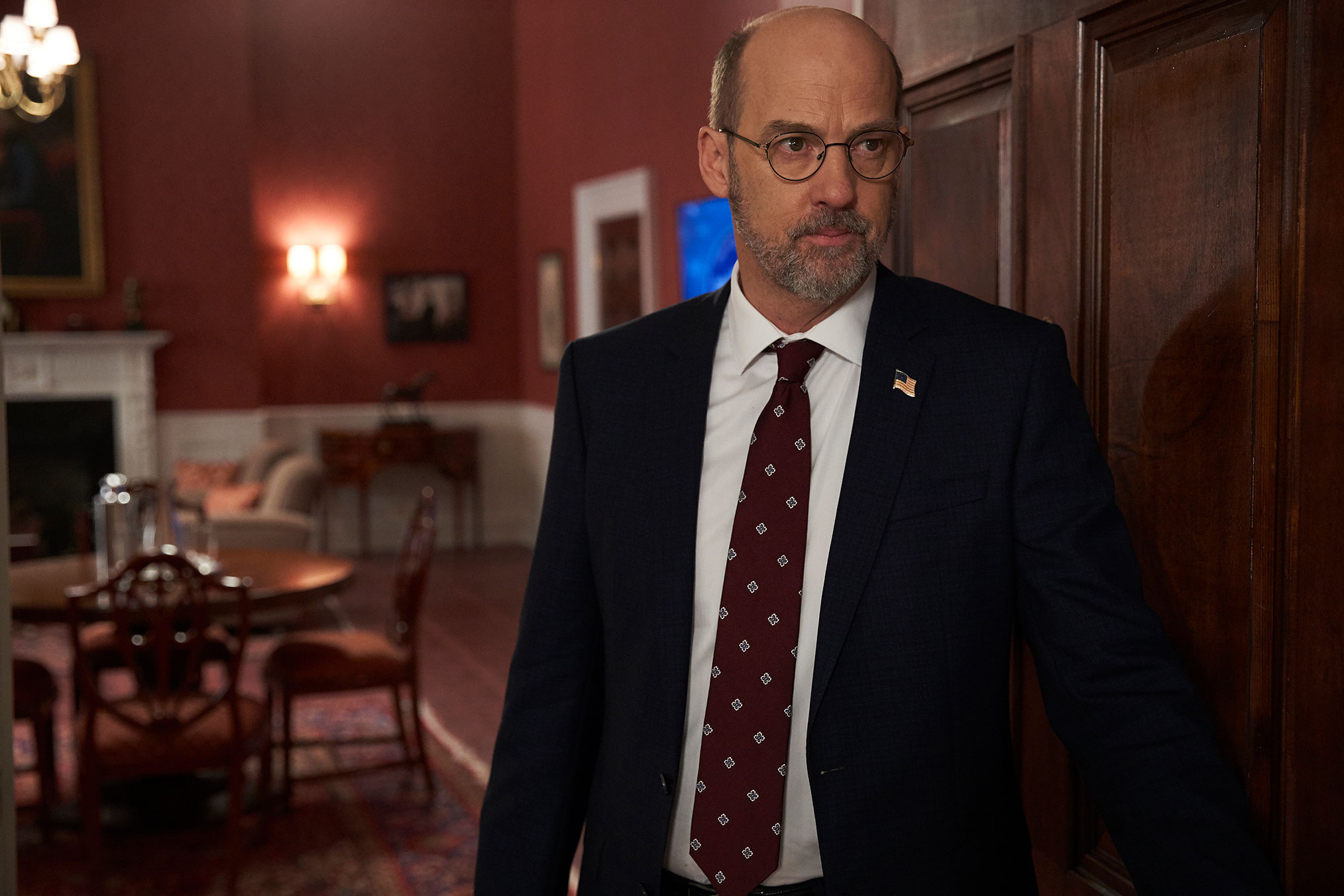
(Netflix)
Kirkman will run as an independent — a major disadvantage even for the sitting president — against opponents who aren’t afraid to fight dirty. But some staff additions will offer him an edge in his quest to retain the White House: digital wiz Dontae Evans (Benjamin Watson), a social-media-savvy millennial, and Lorraine Zimmer (Julie White), a battle-hardened campaign manager who lacks Kirkman’s compulsion for doing the right thing. “She’s ruthless and pragmatic,” cautions Baer, “like the little devil versus Emily’s angel.”
The most notable hire will be Kirkman’s new chief of staff, Mars Harper, played by Anthony Edwards, another ER veteran, who was a mainstay on the NBC drama from 1994 to 2002. Mars is an ambitious, whip-smart D.C. insider, and viewers will be introduced to him in classic ER fashion: a walk-and-talk scene that weaves across the West Wing.
“Nobody was better than Tony and George Clooney at going through the whole ER in one take,” Baer recalls. “I love the idea of opening with that homage. Like, ‘Oh, there’s Mark Greene, I feel comfortable now.'” The familiarity wasn’t lost on Edwards, either. “It reminded me of how hard it was to do all of that,” he says. “I’m definitely glad I got my new hip!” (The actor had replacement surgery in 2017.)
Mars will certainly need to stay limber in the 10 episodes ahead. In addition to serving as the gatekeeper to Kirkman, at home he’ll bear the burden of trying to keep wife Lynn (Lauren Holly) — who’s deep in the throes of a battle with painkillers — from going off the rails. “He doesn’t excel interpersonally,” Edwards acknowledges. “The pressure of what’s going on with his wife will push him to do things he didn’t know he was capable of.”
Designated Survivor, Season 3 Premiere, Friday, June 7, Netflix
This is an abbreviated version of TV Guide Magazine’s latest cover story. For more, pick up the issue, on newsstands now.
From TV Guide Magazine
How 'Countdown' Recruited Jensen Ackles to Go Full 'Die Hard'
Countdown boss Derek Haas talks creating the character around Ackles, and the cast teases the “Avengers”-like team of the crime thriller. Read the story now on TV Insider.











